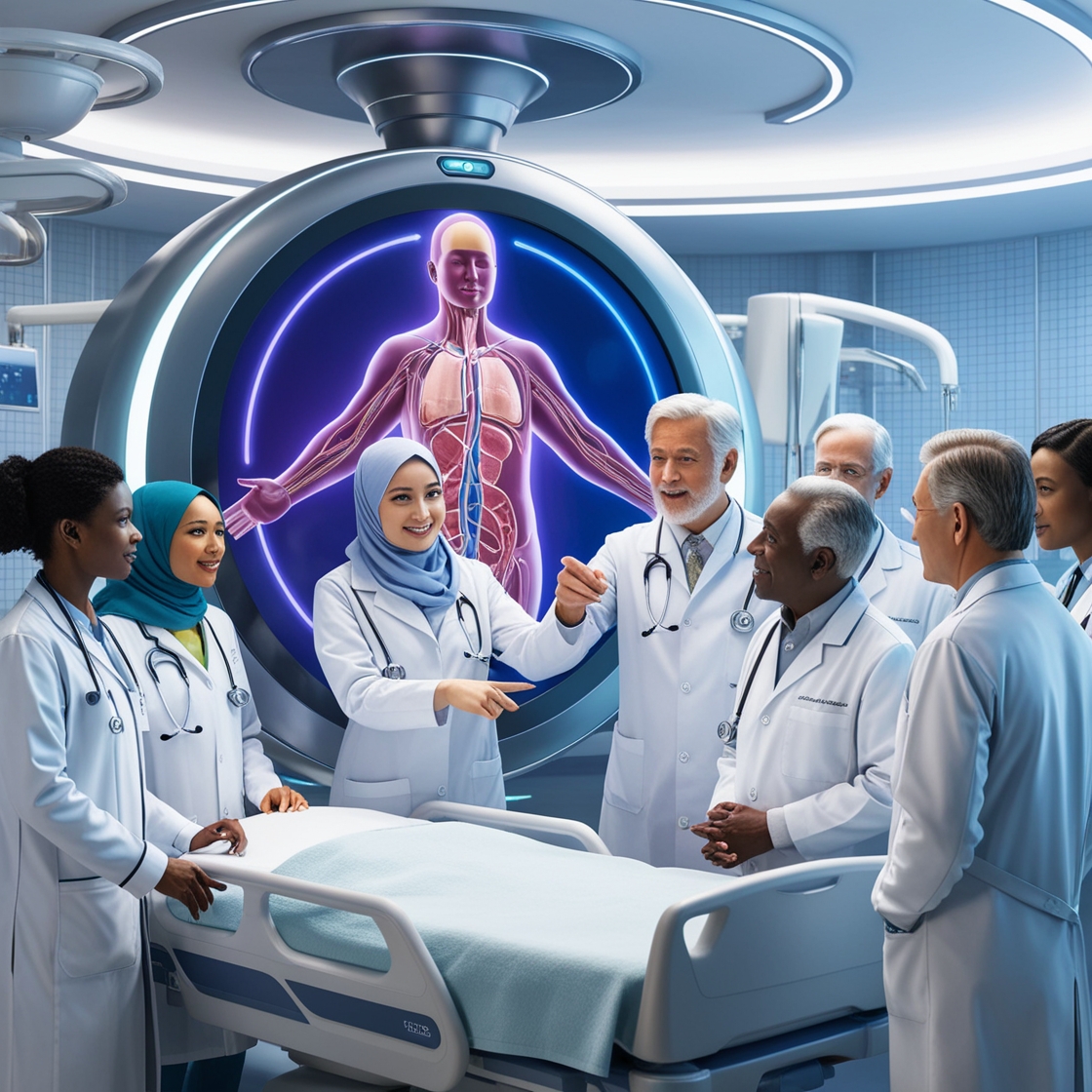Introduction
Artificial Intelligence (AI) is revolutionizing the healthcare industry by introducing groundbreaking solutions that enhance patient care, streamline administrative tasks, and improve diagnostic accuracy. But how exactly is AI transforming healthcare? Let’s dive in.
What is AI in Healthcare?
AI in healthcare refers to the use of advanced algorithms and machine learning models to assist in diagnosing diseases, managing treatment plans, and improving patient care outcomes.
Benefits of AI in Healthcare
Improved Diagnosis and Treatment
AI helps doctors identify diseases with higher accuracy, minimizing the risk of human error.
Personalized Medicine
AI tailors treatment plans based on individual patient data, improving recovery rates.
Predictive Analytics
AI can predict disease outbreaks and patient deterioration, enabling proactive care.
AI Applications in Diagnostics
AI-Powered Imaging Tools
AI enhances medical imaging techniques like MRI and CT scans for faster and more accurate results.
Early Disease Detection
AI tools detect diseases like cancer in their early stages, improving survival rates.
AI in Treatment Planning and Management
AI-Assisted Surgery
AI assists surgeons with precision and real-time feedback during complex procedures.
Robotics in Surgery
Robotic systems powered by AI help perform minimally invasive surgeries.
AI in Drug Discovery and Development
Accelerating Research
AI speeds up the drug discovery process by analyzing vast datasets.
Cost Reduction
AI reduces research costs by identifying potential compounds faster.
AI in Patient Care and Management
Virtual Health Assistants
AI chatbots assist patients with basic health queries and medication reminders.
Remote Patient Monitoring
AI tracks patient vitals remotely, improving chronic disease management.
AI for Administrative Efficiency
Automating Medical Records
AI automates tasks like medical record documentation, saving time.
Streamlining Workflow
AI helps manage hospital operations more efficiently.
AI and Healthcare Data Security
Enhancing Data Privacy
AI strengthens encryption and security protocols for patient data.
Preventing Cyber Threats
AI identifies potential cybersecurity threats in real-time.
Challenges and Limitations of AI in Healthcare
Data Bias
AI models may show biases based on data limitations.
Ethical Concerns
Issues like data consent and patient privacy need careful consideration.
The Future of AI in Healthcare
AI will continue to evolve, offering more precise treatments, reducing costs, and improving global health outcomes.
Conclusion
AI is undoubtedly transforming the healthcare landscape. From improving diagnostics to automating administrative tasks, the benefits are vast. However, challenges like data bias and ethical concerns must be addressed to ensure equitable healthcare for all.
FAQs
1. How is AI used in healthcare today? AI is used for diagnostics, treatment planning, patient monitoring, and administrative tasks.
2. Can AI replace doctors? No, AI assists doctors but cannot replace the expertise and empathy of human healthcare professionals.
3. Is AI in healthcare safe? Yes, when implemented with proper regulations and security measures.
4. What are the risks of using AI in healthcare? Data bias, ethical concerns, and potential misuse of patient data.
5. How will AI impact healthcare jobs? AI will transform roles, focusing healthcare professionals more on patient care while reducing administrative burdens.
Please don’t forget to leave a review.
Explore more by joining me on Patreon
